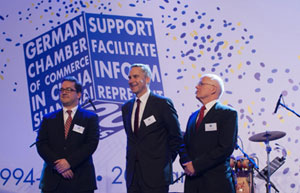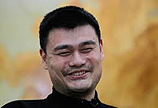World Cup spurs sales of colorful wigs
By Xie Chuanjiao in Qingdao (China Daily) Updated: 2014-06-03 07:12The Northern Hemisphere is entering summer so wig designers chose light-net foundations to ensure air permeability.
"Chemical-fiber wigs should not be worn for more than three consecutive hours or people will become uncomfortable," Sun told China Daily. "But human-hair wigs can easily be worn much longer, and they won't deform for months, or even one or two years."
Producing wigs requires more than 30 separate processes, including making the foundation, hair preparation and styling.
Several key steps must be done manually, such as adding hair to the foundation with hooks. A stylist will then comb and trim the wig as if working on a real head. It takes several years to become a skilled wig technician.
Most human-hair wigs are sold at stores, and specialized hair parlors and salons because they often require fitting and further adjusting. Wigs are becoming increasingly popular as a fashion accessory because many celebrities - such as singer Lady Gaga and Chinese actress Fan Bingbing - wear them.
Although Jifa Group has grown by building a more diversified product portfolio and with high-tech inventions such as high-liquid absorption chitosan fiber extracted from shrimp or crab shells to produce absorbable sutures, wigs are what the company started with, and the company is still a dominant force in the industry, said Liang.
Overseas sales of its hair products reached $5 million last year, and the company controls two-thirds of the world's male wig market, he said.
|
 |
 |
| Brazil rentals feel the World Cup squeeze | 7 amazing ways to mark World Cup |
- World Cup spurs sales of colorful wigs
- Male models help push shoe sales
- Bumper year forecast for China's wheat farmers
- Apps shine at Apple's WWDC
- China's non-manufacturing PMI rises in May
- US export policy change said to 'help both sides'
- Listed company with only 7 employees
- ST Electronics looks to begin competing overseas

















